Yesterday I came home to the sad but not surprising news that Arthur had died. He would have been 97 on Independence Day, he was always proud of the fact he was born on that day, and after years of failing health was seriously ill with cancer. I had forgotten just how horrible this disease is in the final weeks as the person’s body slowly shuts down.
So not a surprise but certainly sad. Arthur was unofficially adopted by our family and many others. I certainly regarded his as an unofficial great uncle who lived opposite my grandmother and who would go everyday at 3pm for afternoon tea.
Arthur had no surviving family that I know about. His wife died a few years ago leaving him very lonely, so my image now is of him sat next to his wife in heaven. They had no children despite a desire to do so, Arthur loved children and would I’m sure have been a great father.
Yet, whilst he was lonely after Elna’s death, he had many friends who became his family. The Methodist Church, which he joined in his youth, was his family. He served as a lay preacher for 70 years and for the last twenty years Monks Road Methodist Church was his family.
Arthur was a quiet, little man but he has lived through some of the great moments of history. I know some of his stories, the ones he repeatedly told at tea at Grandma’s. I wish I had had chance to ask him more.
This is a history blog, and he lived through history, so I think it only fitting he has a post dedicated to his history.
Arthur, or Claude Arthur, was born in Guernsey in 1921. His family did not have much money. His stories from these school days include the year that Santa forgot him. He awoke one Christmas to find no presents and when he went to his uncle, his uncle promised he would come the next year. I never liked to ask what had happened.
A happier story was the day his teacher was telling them stories about Jesus. This obviously had a large impact on Arthur and began his lifelong involvement in the church.
He was a very clever person but like many had to leave school as soon as he was fourteen to go to work for a company that sold tomatoes in greenhouses. Apparently this was a major island trade back then due to its warmer climates.
Arthur always retained a love for his childhood home and would go back for visits with his wife before she became ill.
But he left at the age of eighteen with the other young men and children just before the Germans invaded the Channel Islands in 1940. Despite the British Government’s decision not to protect the Islands from invasion, many children escaped to safety and many young men like Arthur came to fight for the British Army.
However, Arthur has always had bad eyesight. For years we have had to introduce ourselves if we saw him out and about, as his eyesight was so bad he could not see our faces clearly enough to see who it was. And yet they gave him a gun and set him on target practice.
However, it didn’t last long, his sight was so bad! Instead he served for two years in support roles, first working in the mess canteen and later as an Officer’s Batman.
But after two years he was discharged from the Army due to his eyesight and sent to work for a company making soldiers’ uniforms. He was in charge of the stock room, which must has held responsibility as he still seems shocked at how his pay doubled from what the Army had paid him.
He often told the story of how he arrived at the train station alone and asked one of the VAD ladies, there to welcome new arrivals, where the nearest Methodist Church was located. He was already a member of the Church and his instinct was to find a group he knew already as his family. The lady turned out to be the Minister’s wife and she welcomed him to the town and the local church.
At some stage in his late twenties, I think, he went to Cliff College.
Now if you have ever met Arthur he would have mentioned Cliff College. It was clearly the happiest period of his life.
Cliff College used to train Methodist Lay Preachers, and it is still a religious college but now open to all denominations.
The Methodist Church had always been important to Arthur, and he was keen at studying. So having the chance to study the bible with like minded people, and training to preach and spread the word of God by preaching at different missions was clearly a high point of his life. It is therefore no wonder he loved to recall this period of his life so often.
I think he would have liked to be a Minister but he said noone thought he could cope with all the study with his eyesight. Instead he served as a lay preacher for seventy years and still preached occasionally into his nineties.
He was asked to stay on to help in the college canteen and there he meet his wife, who I think was a cleaner, who always went to the local church. So he fell in love and got married.
Sadly, they never had children as much as they both would have loved them. But they were happily married until Elna died nearly ten years ago, leaving him very lonely.
At some stage in the sixties they arrived in Lincoln and Arthur worked as a caretaker, first at Big Wesley, the main central Methodist Church in Lincoln, which has since been demolished.
Later he worked as a caretaker at Lincoln College and then at Our Lady’s Church in Lincoln. He clearly enjoyed working with the children and they liked him too. They would often tell him their worries. He always talked with mystified horror about the child that told him they loved him more than their father because their father beat them.
He and Elna used to look after friends’ children, even taking them on holidays.
When fit and able, the two of them travelled all over Europe on holiday. They even visited Communist Russia during the Cold War.
After Elna’s death, Arthur was lonely despite his many friends. Until a few years ago he would regularly go on holidays or out for days on the bus or train on his own. Until the last few months he still went into town and church events several times a week, and for long walks.
I used to frequently see Arthur on the bus on his way home after another adventure out. Ask if he was okay, he would always reply, “I wish my eyesight was better, but I’m okay”.
He used to scare us given how bad his eyesight was and how he never looked when he crossed roads, not that he could see coming cars. He would go for long walks to areas he didn’t know despite long tellings off by Grandma to be safer.
Yet, despite getting lost or turning ill or falling on several occasions, someone always came to his aid and helped him up and home.
My last memory of Arthur when he was still active was having given him a hug and kiss after tea at Grandma’s and watching him walking unsteadily across the road home. I choose to remember the image of a funny looking little man who was as brave as a lion until the end.
A man who always had lots of friends, and kept plodding on no matter what.
Farewell Arthur. And a glorious happy ever after reunited in heaven with Elna.


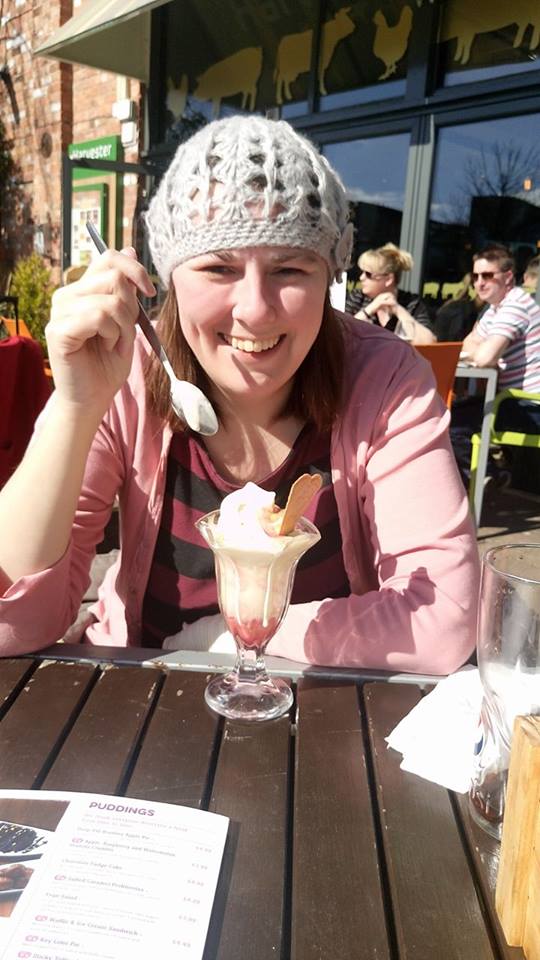
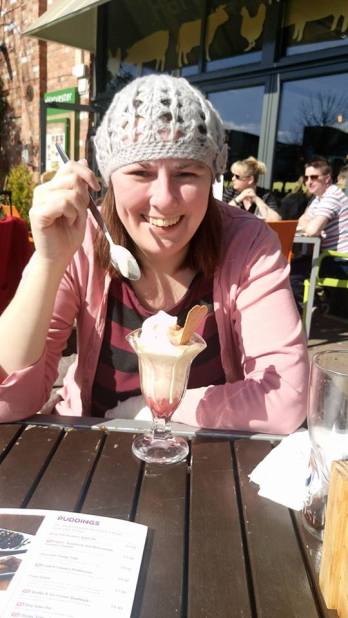 I never went in much for resolutions but last year on my birthday I decided to create a list of the value that defined who I was or wanted to be. The perfect me in my eyes. What I should aim to be. I have yet to resolve what I believe religiously but I do have a set of clearly thought out personal values I try to live by. So the list was an attempt to simplify them and decide on the aspects I wanted to develop. At first I thought of having “to be confident” which was something I did need to work on and I think has developed much this year. However, it was not the core of what I wanted to be. It would help me be the real me but did not define the values I most cherish. However, I found the list could be summoned up in the word “understanding” and I aimed to make it my watch word for the year. As a teacher I would seek understanding of the new subject content I was teaching, understanding of educational theory, understanding of new teaching methods and how well they worked and understanding of my students. As a friend and family member, I would seek to better understand those close to me, of their quirks, values, needs, behaviour and desires. Gaining a better understanding of our relationships, how they worked and how they could grow. For me, I sought to understand myself better. To understand my physical boundaries, how to cope with my conditions better, how to manage them, how to ask for and accept help when needed with grace. Understanding of what made me tick, of the quirks in my brain, of what I felt and believed. Understanding of my strengths and weaknesses, acceptance of who I am and that I am trying my best but striving to be better. I believe in Aristotle’s idea that a happy life is to led a good life. Happiness is something to seek and enjoy, to share and spread. Linked to this I added a seconded watch word, kindness. I aimed to be kind. To not do harm and to help when I could. A random act of kindness can improve a day. It went well hand in hand with understanding and generally leads to happiness. Understanding helps one to see when kindness is needed and in what way it can help. Kindness leads to understanding and friendship. Understanding helps me to see actions that cause me harm and pain are often not intended that way. I do not like conflict and will feel ill at ease if I cannot understand an action. Kindness is the opposite of my other believe that as long as an action harms no one it is fine. I have gotten things wrong many, many times. Said wrong things in the heat of the moment. Like all, I often make mistakes. I try to apologise as soon as I can and to not do it again. Understand why it happened and try to ensure kindness is the outcome next time. Understand I am only human and others are only human, we are all trying to do and be our best but we frequently make mistakes. Understand that if it does not really hurt me and others then something is fine, even if it irks me. If it cause harm then it must be addressed. Understanding I am seeking for an ideal I am very far from but that that should not stop me from seeking. Understand I very often get it wrong, that I often do not live up to my ideals but I can try to be better next time and to not beat myself up. Understand I must keep seeking kindness to myself, to and from other. As this in the start of a new academic year and my approaching birthday I seek to redefine my aims. This year I am to seek. To seek is to be more open and to find. So this year I will seek. To seek will be the watchword underpinned by the ideals, to seek understanding, to seek kindness, to seek happiness, to seek acceptance, to seek bravery, to seek health, to seek peace, to seek trust, to seek beauty. To continue to seek a better me.
I never went in much for resolutions but last year on my birthday I decided to create a list of the value that defined who I was or wanted to be. The perfect me in my eyes. What I should aim to be. I have yet to resolve what I believe religiously but I do have a set of clearly thought out personal values I try to live by. So the list was an attempt to simplify them and decide on the aspects I wanted to develop. At first I thought of having “to be confident” which was something I did need to work on and I think has developed much this year. However, it was not the core of what I wanted to be. It would help me be the real me but did not define the values I most cherish. However, I found the list could be summoned up in the word “understanding” and I aimed to make it my watch word for the year. As a teacher I would seek understanding of the new subject content I was teaching, understanding of educational theory, understanding of new teaching methods and how well they worked and understanding of my students. As a friend and family member, I would seek to better understand those close to me, of their quirks, values, needs, behaviour and desires. Gaining a better understanding of our relationships, how they worked and how they could grow. For me, I sought to understand myself better. To understand my physical boundaries, how to cope with my conditions better, how to manage them, how to ask for and accept help when needed with grace. Understanding of what made me tick, of the quirks in my brain, of what I felt and believed. Understanding of my strengths and weaknesses, acceptance of who I am and that I am trying my best but striving to be better. I believe in Aristotle’s idea that a happy life is to led a good life. Happiness is something to seek and enjoy, to share and spread. Linked to this I added a seconded watch word, kindness. I aimed to be kind. To not do harm and to help when I could. A random act of kindness can improve a day. It went well hand in hand with understanding and generally leads to happiness. Understanding helps one to see when kindness is needed and in what way it can help. Kindness leads to understanding and friendship. Understanding helps me to see actions that cause me harm and pain are often not intended that way. I do not like conflict and will feel ill at ease if I cannot understand an action. Kindness is the opposite of my other believe that as long as an action harms no one it is fine. I have gotten things wrong many, many times. Said wrong things in the heat of the moment. Like all, I often make mistakes. I try to apologise as soon as I can and to not do it again. Understand why it happened and try to ensure kindness is the outcome next time. Understand I am only human and others are only human, we are all trying to do and be our best but we frequently make mistakes. Understand that if it does not really hurt me and others then something is fine, even if it irks me. If it cause harm then it must be addressed. Understanding I am seeking for an ideal I am very far from but that that should not stop me from seeking. Understand I very often get it wrong, that I often do not live up to my ideals but I can try to be better next time and to not beat myself up. Understand I must keep seeking kindness to myself, to and from other. As this in the start of a new academic year and my approaching birthday I seek to redefine my aims. This year I am to seek. To seek is to be more open and to find. So this year I will seek. To seek will be the watchword underpinned by the ideals, to seek understanding, to seek kindness, to seek happiness, to seek acceptance, to seek bravery, to seek health, to seek peace, to seek trust, to seek beauty. To continue to seek a better me.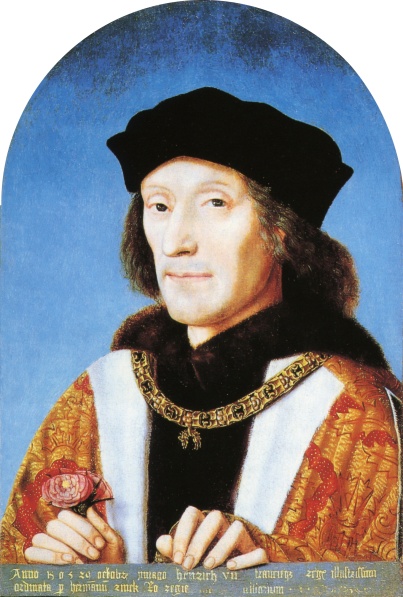 Henry Tudor, Earl of Richmond, was born on 28 January 1457 at Pembroke Castle into a country torn apart by civil war and plague.
Henry Tudor, Earl of Richmond, was born on 28 January 1457 at Pembroke Castle into a country torn apart by civil war and plague.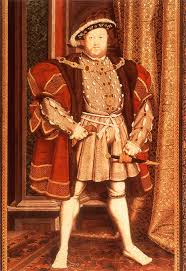 Poor teaching during my own A-levels meant I harboured a hated of the Tudors for eighteen years. I only realised how fascinating a topic it is when forced to study the Tudors in preparation for teaching it. I was determined my students would not share my experience. My Action Research project explores ways to make studying the Tudors enjoyable and how this impacts on learning. Lincoln College is a general FE institute, many students who have had negative school experiences including those repeating their exams or with additional needs. Fuller and Macfayden (2012) found learners entering FE often see themselves as low achievers. However, Wallace (2014) notes this can be overcome by helping learners feel valued and engaged. The A-level reforms with their increased emphasis on exams have proven challenging to our students especially those with additional needs. Initial research with my AS class, who form my case study group, suggests that enjoyment helps increasing student motivation and concentration. However, the learners differ in what they find the most enjoyable and effective ways to learn. For me, positive relationships built on mutual respect appear to be key to understanding learners needs and preferences and helping all succeed. Visual representations of subject content, in the form of doodles to depict ideas, using giant essay plans, and incorporating different graphics within work, also seem to help keep these leaners engaged by making it easier for them to organise and remember information.
Poor teaching during my own A-levels meant I harboured a hated of the Tudors for eighteen years. I only realised how fascinating a topic it is when forced to study the Tudors in preparation for teaching it. I was determined my students would not share my experience. My Action Research project explores ways to make studying the Tudors enjoyable and how this impacts on learning. Lincoln College is a general FE institute, many students who have had negative school experiences including those repeating their exams or with additional needs. Fuller and Macfayden (2012) found learners entering FE often see themselves as low achievers. However, Wallace (2014) notes this can be overcome by helping learners feel valued and engaged. The A-level reforms with their increased emphasis on exams have proven challenging to our students especially those with additional needs. Initial research with my AS class, who form my case study group, suggests that enjoyment helps increasing student motivation and concentration. However, the learners differ in what they find the most enjoyable and effective ways to learn. For me, positive relationships built on mutual respect appear to be key to understanding learners needs and preferences and helping all succeed. Visual representations of subject content, in the form of doodles to depict ideas, using giant essay plans, and incorporating different graphics within work, also seem to help keep these leaners engaged by making it easier for them to organise and remember information.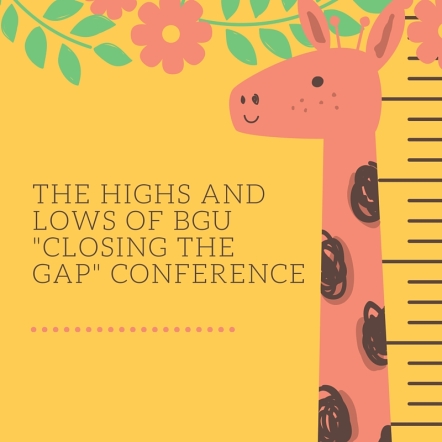 Its been a while since a proper History or teaching post, so a review of the “Closing the Gap” I attended last week seems a good place to start. It was the first FE sector conference run by BGU and contained some excellent speakers. We were part of the wider “Closing the Gap” conference but had our section. Highs Trevor Gordon was an amazing and inspiring speaker. A man who can talk about equality and diversity for one hour and 45 minutes and keep his audience engaged is outstanding. If you ever get chance to hear him do. Sue Wallace talking about closing the gap in FE. How the sector tends to attract weaker students who have struggled at school and who often have additional needs. She referred to some interesting research into how we can close the gap, more reading to add to my summer list. Presenting my Action Research Project on “Making the Tudors Interesting” looking at if enjoyment affects learning and which activities have the highest impact on learning. It seemed to get a positive reception. However I probably got the sympathy vote having fallen splat on the floor just beforehand. Low A literal low. Sprained my ankle and falling splat on my face in the corridor in front of most of the delegates. I managed the speech and survived the rest of the day, after I had been picked up of the floor. But I could hardy move for two days and am still rather sore. But it was a good excuse to do some reading. More about my project in another blog post. TTFN.
Its been a while since a proper History or teaching post, so a review of the “Closing the Gap” I attended last week seems a good place to start. It was the first FE sector conference run by BGU and contained some excellent speakers. We were part of the wider “Closing the Gap” conference but had our section. Highs Trevor Gordon was an amazing and inspiring speaker. A man who can talk about equality and diversity for one hour and 45 minutes and keep his audience engaged is outstanding. If you ever get chance to hear him do. Sue Wallace talking about closing the gap in FE. How the sector tends to attract weaker students who have struggled at school and who often have additional needs. She referred to some interesting research into how we can close the gap, more reading to add to my summer list. Presenting my Action Research Project on “Making the Tudors Interesting” looking at if enjoyment affects learning and which activities have the highest impact on learning. It seemed to get a positive reception. However I probably got the sympathy vote having fallen splat on the floor just beforehand. Low A literal low. Sprained my ankle and falling splat on my face in the corridor in front of most of the delegates. I managed the speech and survived the rest of the day, after I had been picked up of the floor. But I could hardy move for two days and am still rather sore. But it was a good excuse to do some reading. More about my project in another blog post. TTFN.